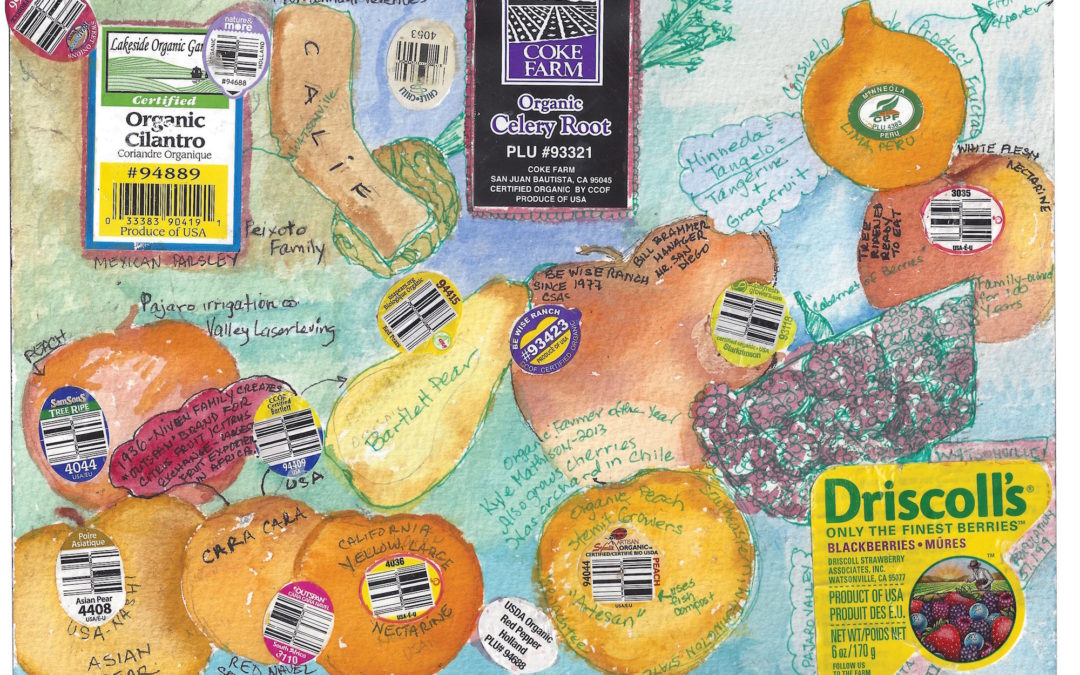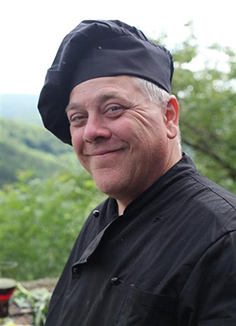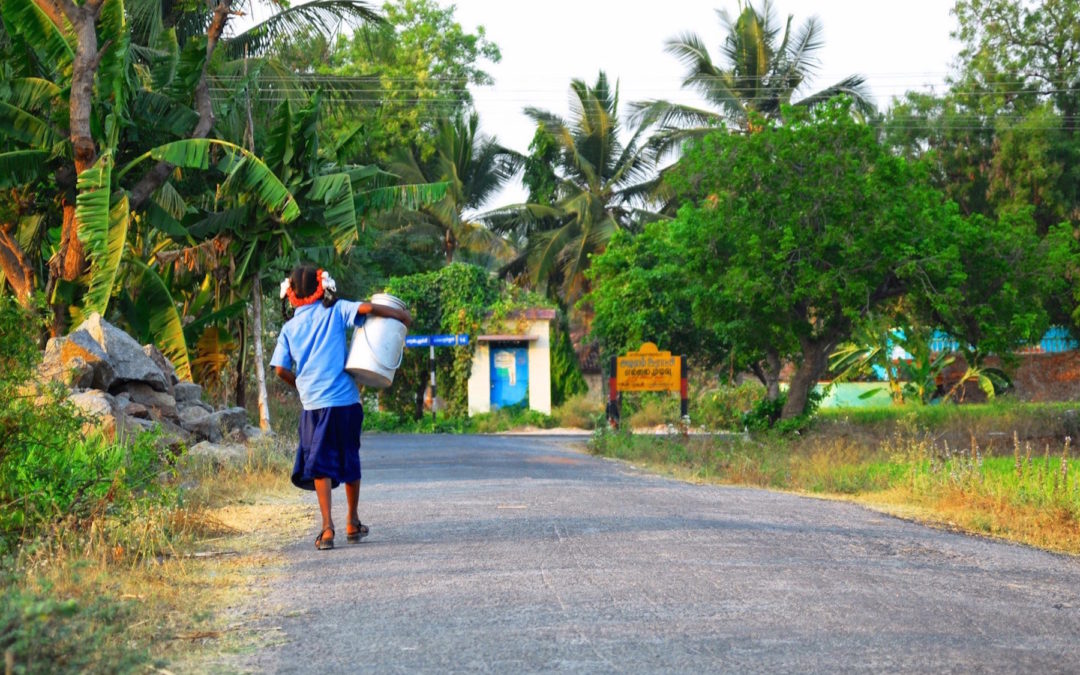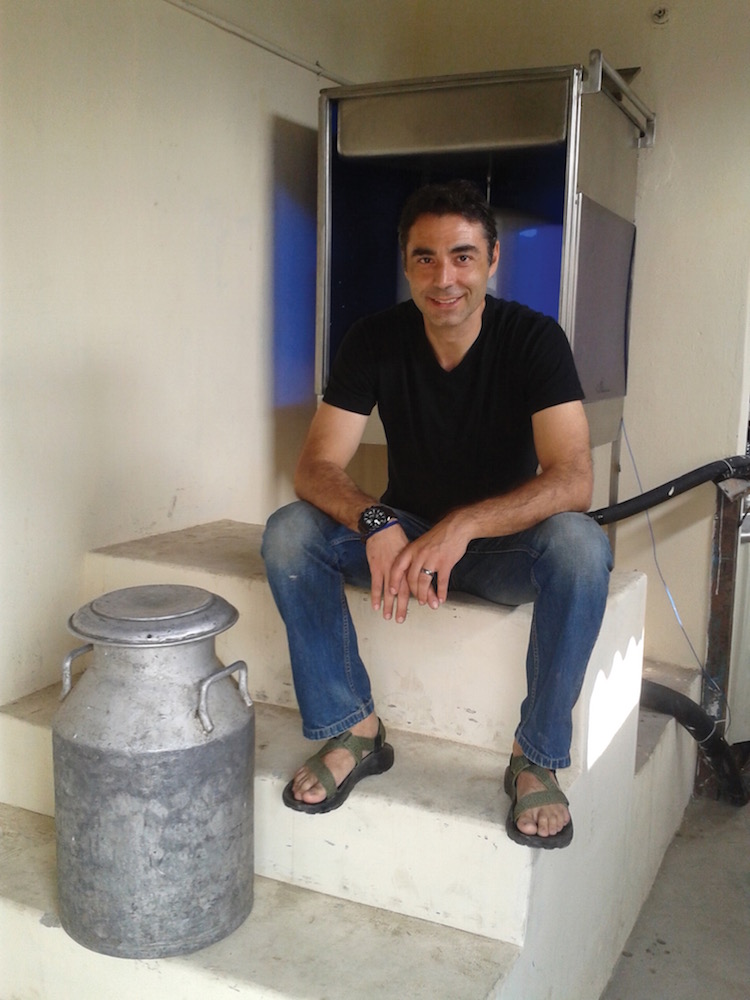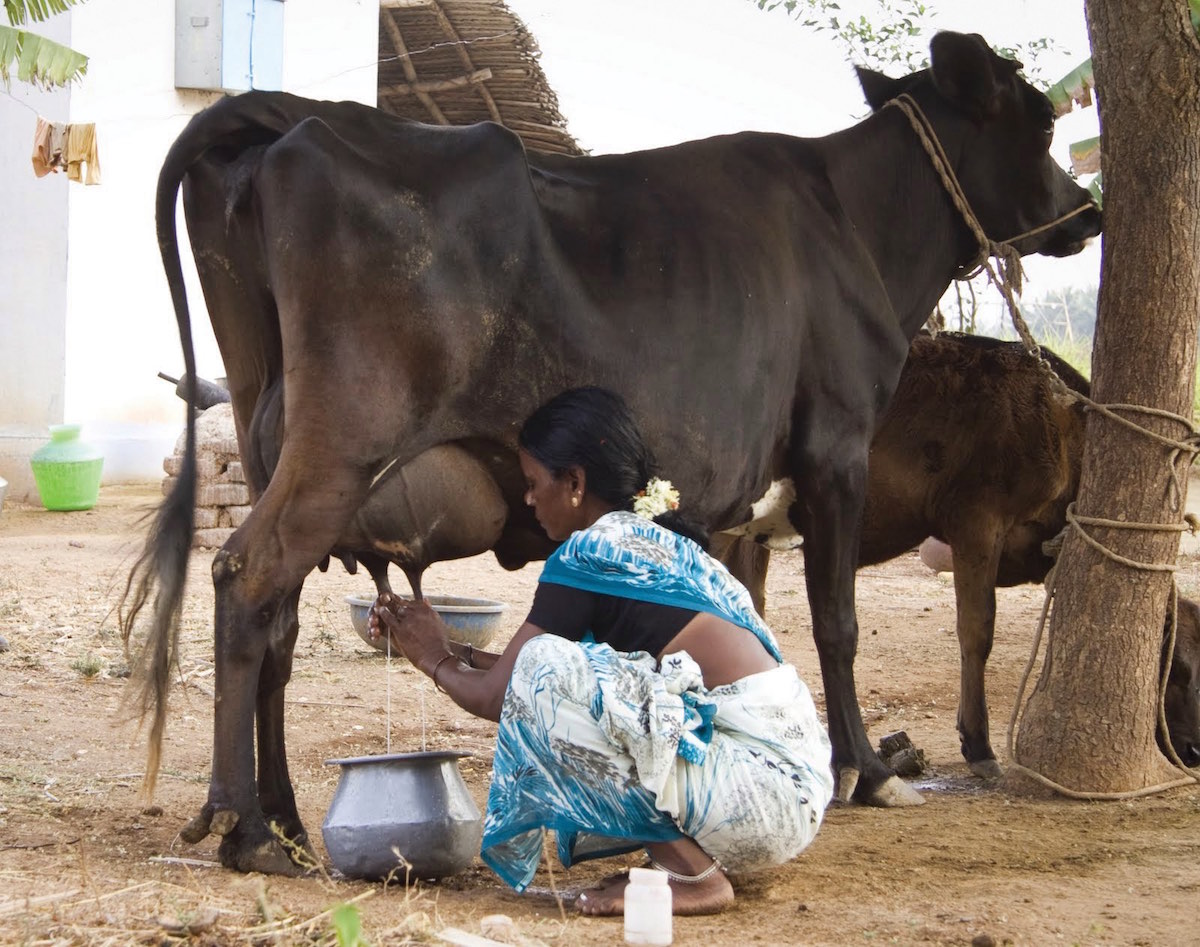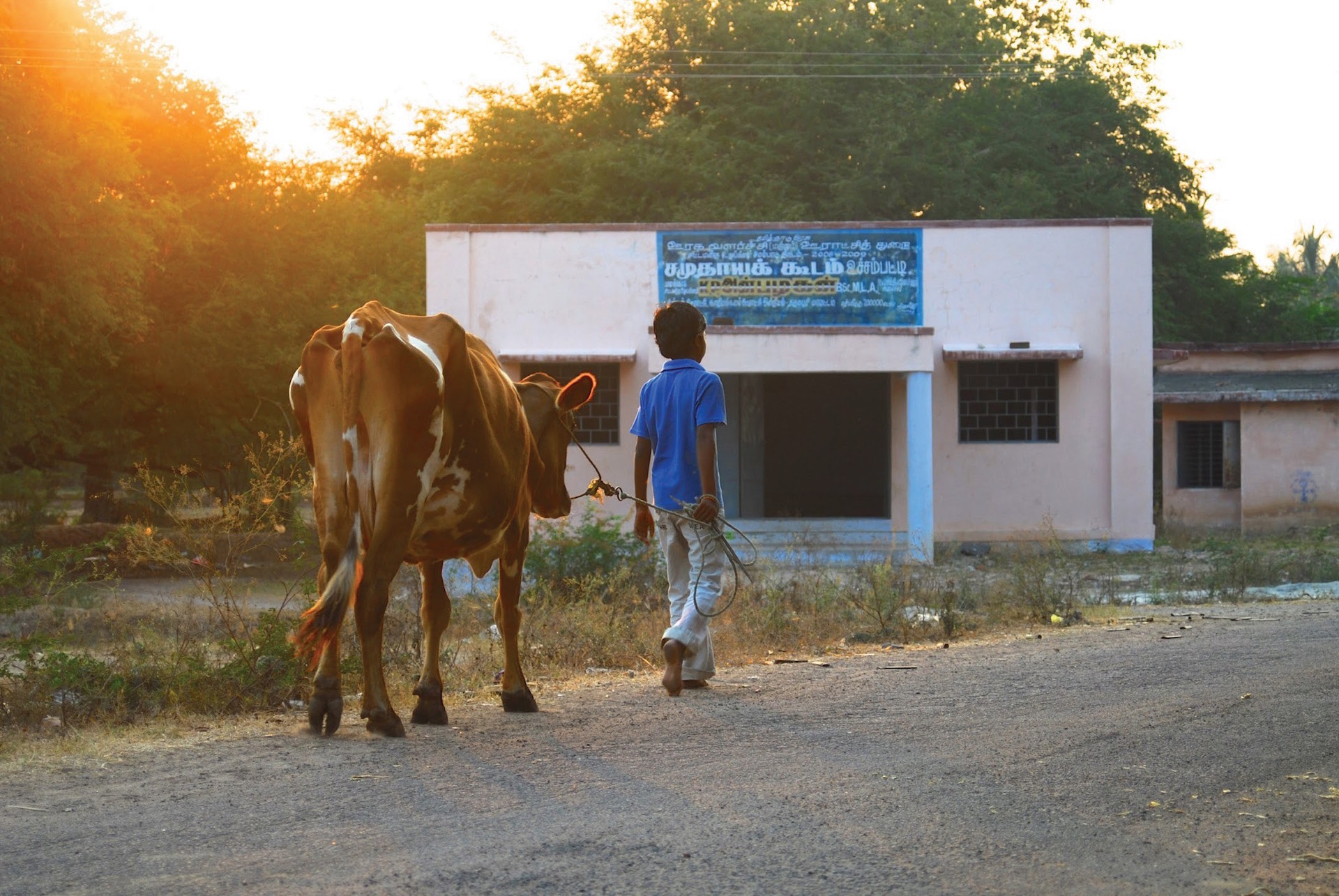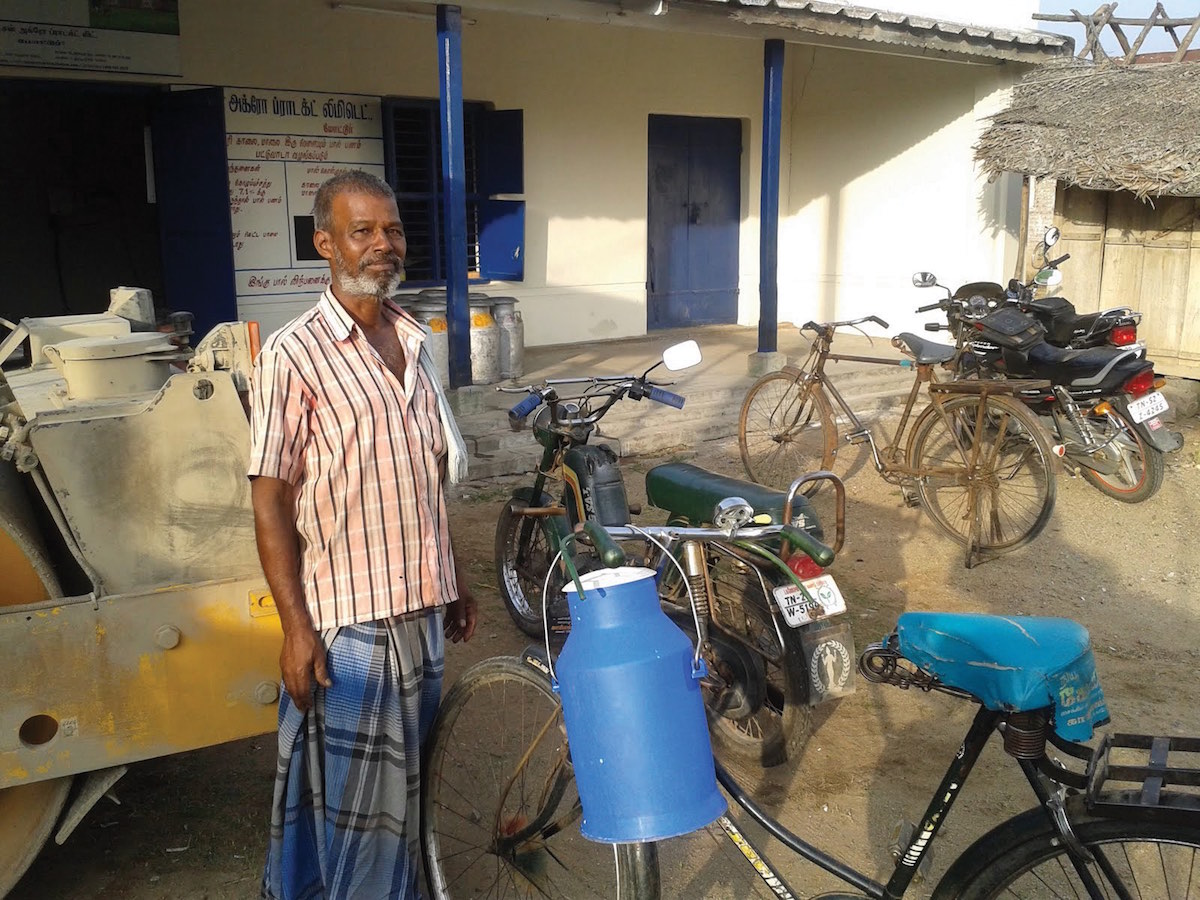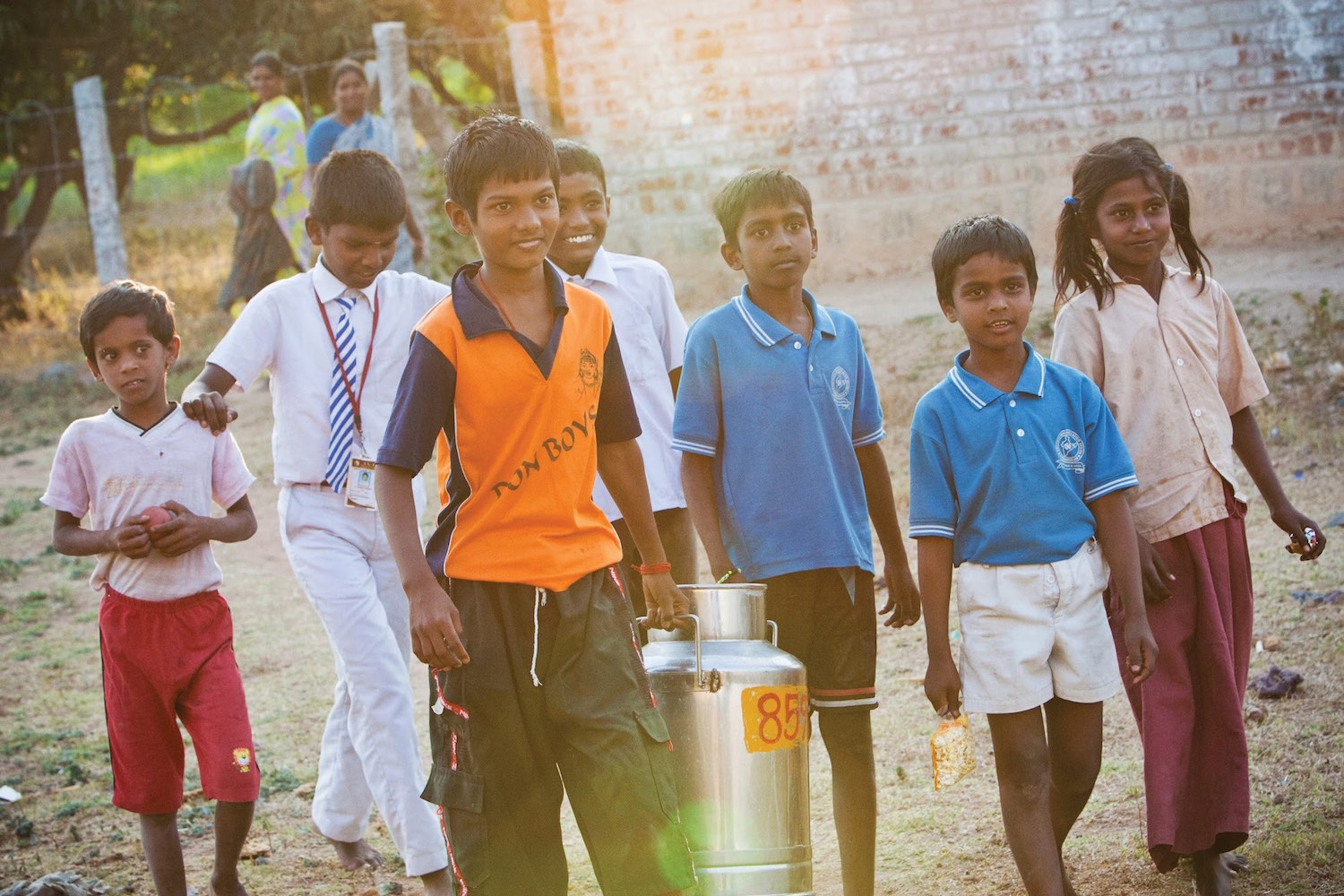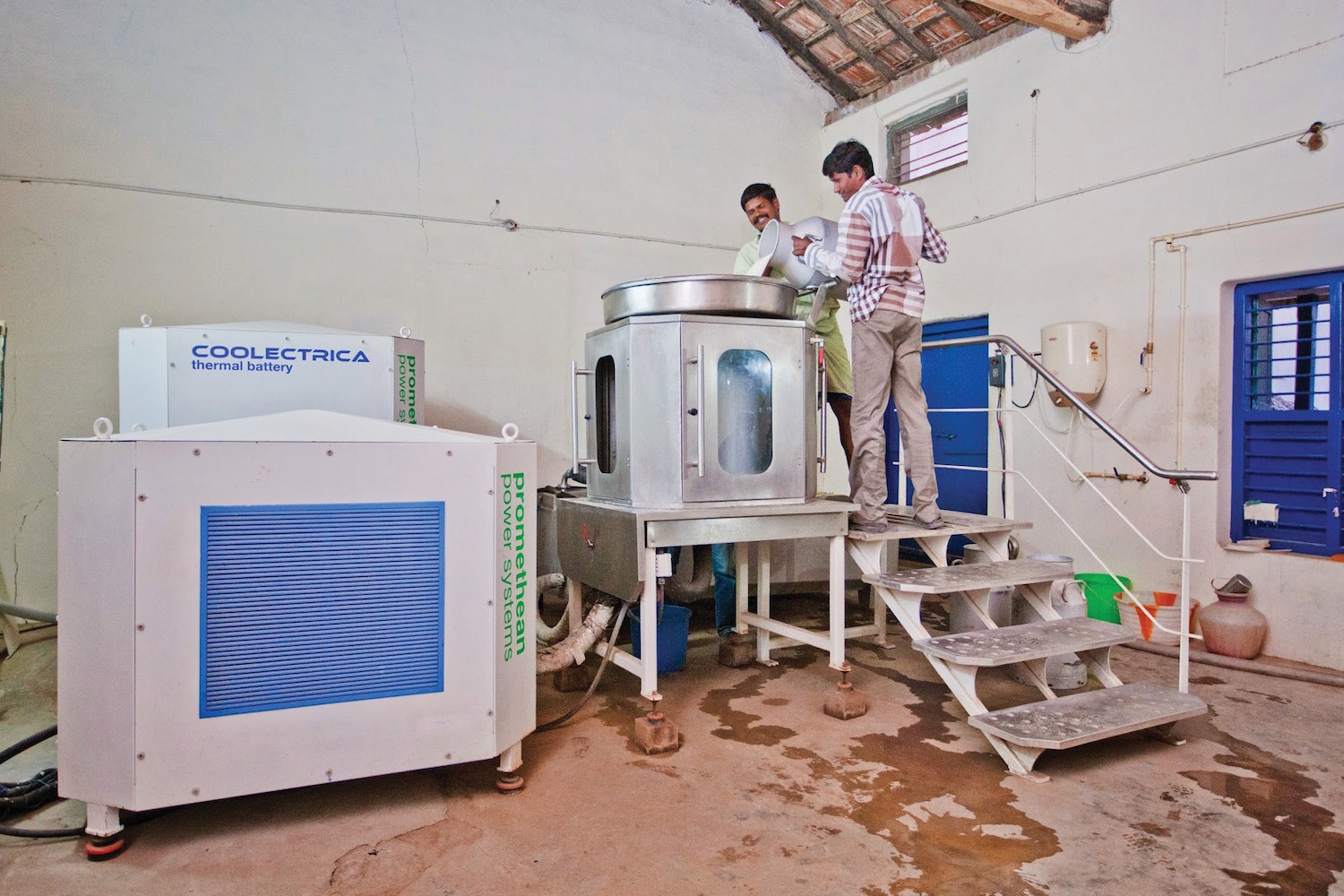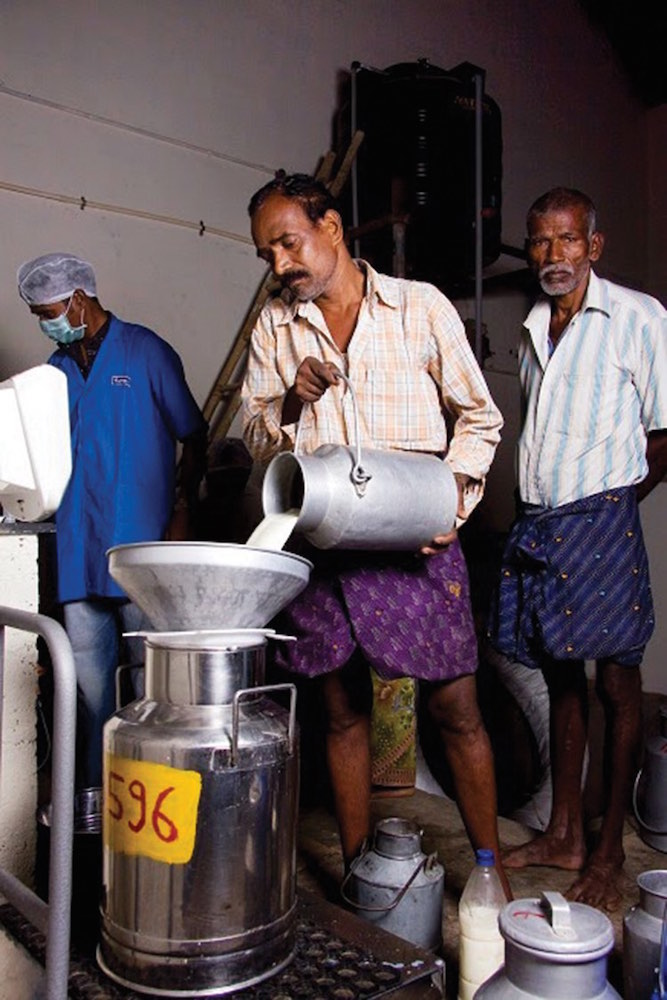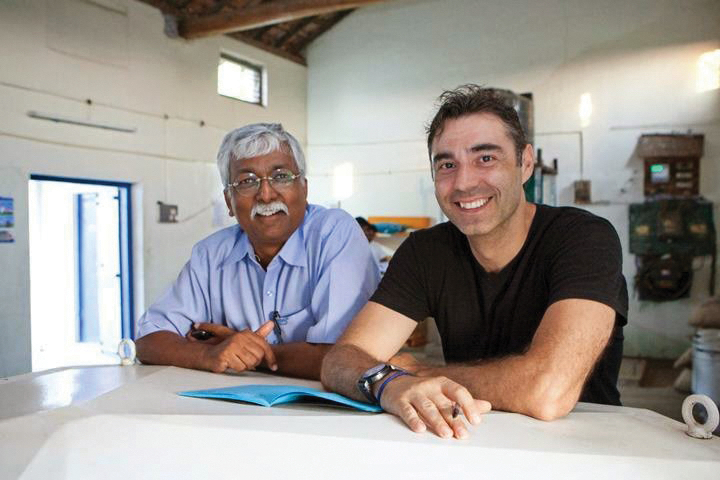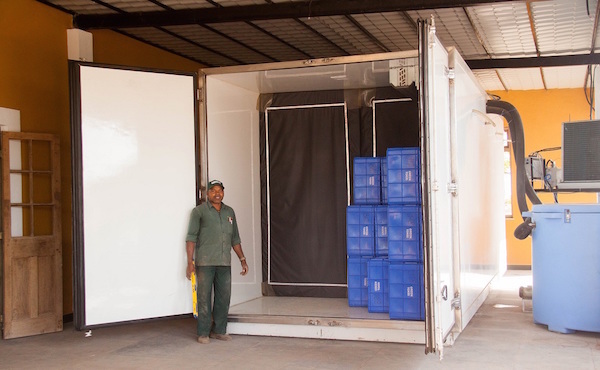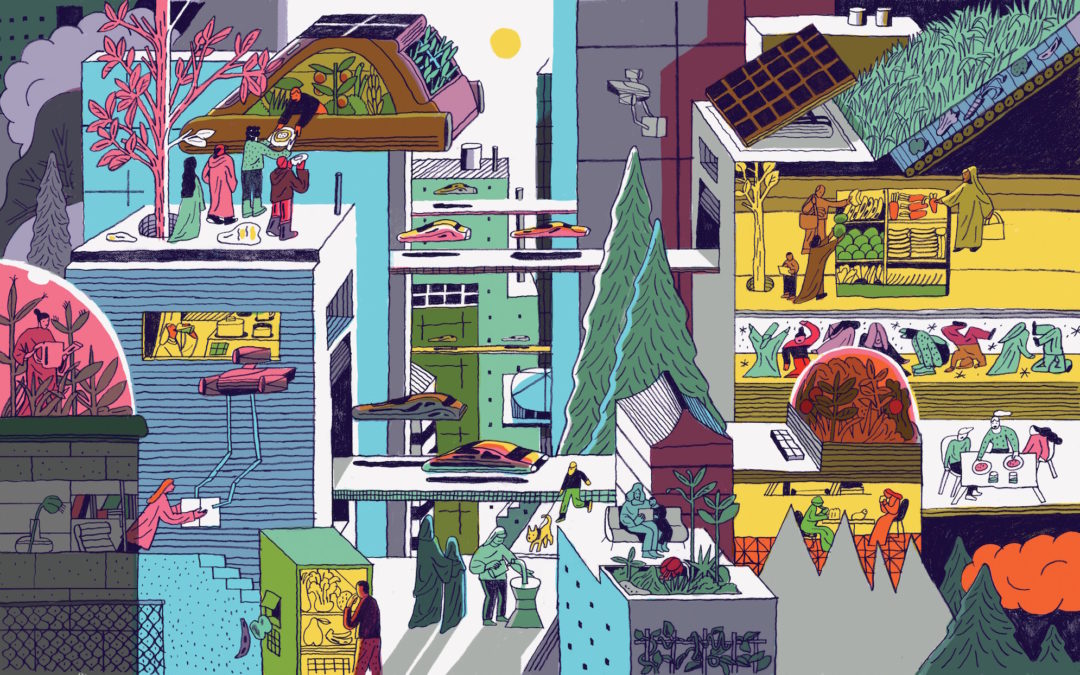
Really, Really Smart Cities
At Food+City, we think a lot about the relationship between food and our cities. Now, through the artistry of Josh Cochran, we can look at how food might fit into future urban landscapes and what urban designers now call Smart Cities. We contacted three really, really smart people for their visions of what our food-wise city might look like in the future.
JOHN JUDGE
The president of the Appalachian Mountain Club brought his view of how plants, agriculture and the natural environment could mingle in a city. He envisioned new uses for telephone pole infrastructure as aeroponic poles, vertical gardens to be found every few feet. And he sees car-oriented technology reapplied to food, including parking lot–based planters powered by hydrogen fuel cell vehicles that plug in during working hours; and a just-in-time composting “uber” with sensors that indicate when the bin is full and trigger a self-driving composting barge to come pick it up.
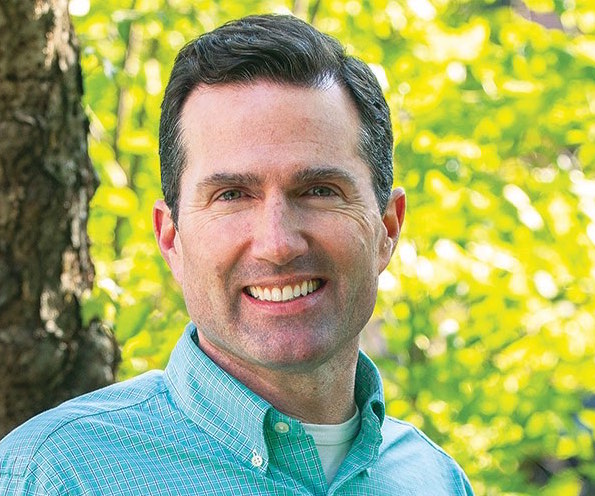
SONIA MASSARI
As director of the GustoLab Food Studies Program in Rome, Massari sees an end to restaurants as we know them but no lack of socializing over food. People will prepare food and eat on the go in their driverless cars; and solar-powered food trucks will grow their own ingredients in mobile gardens. City squares and green spaces — some on rooftops — will become open-air gyms and community gardens. And neighborhoods will be equipped with digital vending machines that sell fruit, vegetables, milk and other fresh products. In Massari’s future, every flower bed and traffic barrier will become agricultural land. Through an app, all citizens will be able to water plants and take care of these areas. Urban gardens and agricultural areas will be monitored using Information Communication Technologies (ICT) and digital devices. And perhaps most notably, food waste will disappear: All leftover food from supermarkets, kitchens, industries or urban agriculture will be gathered by food collection apps (which will direct food to people who need it) or it will be sold in supermarkets featuring soon-to-expire foods sold at a discount.
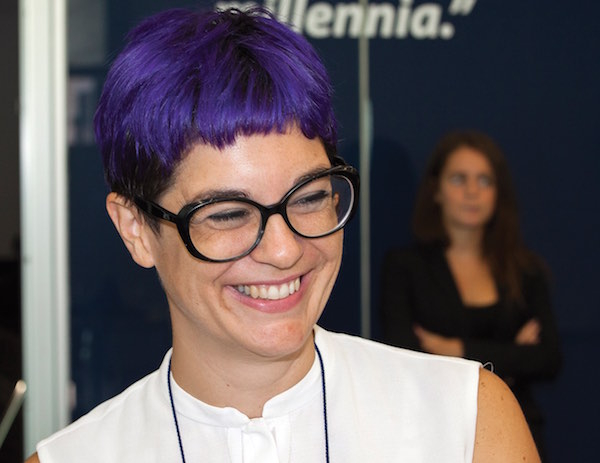
LAURIE ZAPALAC
An urban planner who works with cities as centers of innovation and food distribution, Zapalac sees kitchens as hubs of information that feed individual food supply chains. The details of our kitchen inventories will be available on our smart devices, so we avoid buying duplicate bottles of mustard — but also so that grocery delivery services can be truly automated. Along the way, recycling and compostable waste collection will be complementary services to grocery delivery: Containers will be reused rather than recycled (think the return of the milkman), and our food scraps will become the compost feeding the produce that will eventually become our next great meal. Thinking more broadly, in neighborhoods once recognized as food deserts, an expanding network of community foodscapes will combine concepts from the edible education movement with innovative forms of job training — building capacity by strengthening the soil and enhancing the beauty of once depleted communities. These places will also function as stages and urban “dining rooms,” providing venues where local culture and local identity can be shared and celebrated.
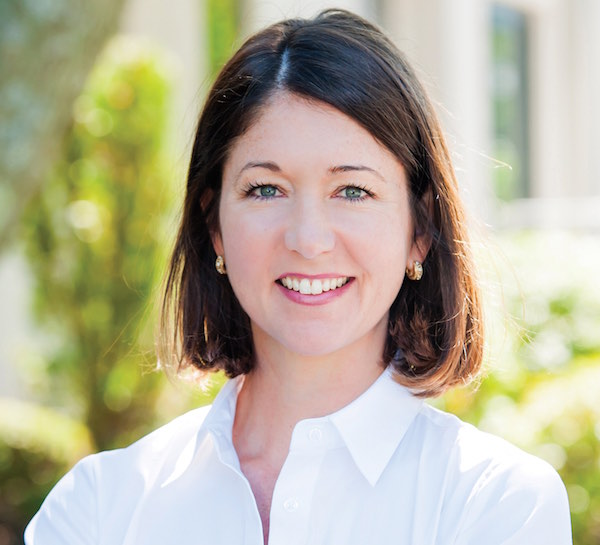
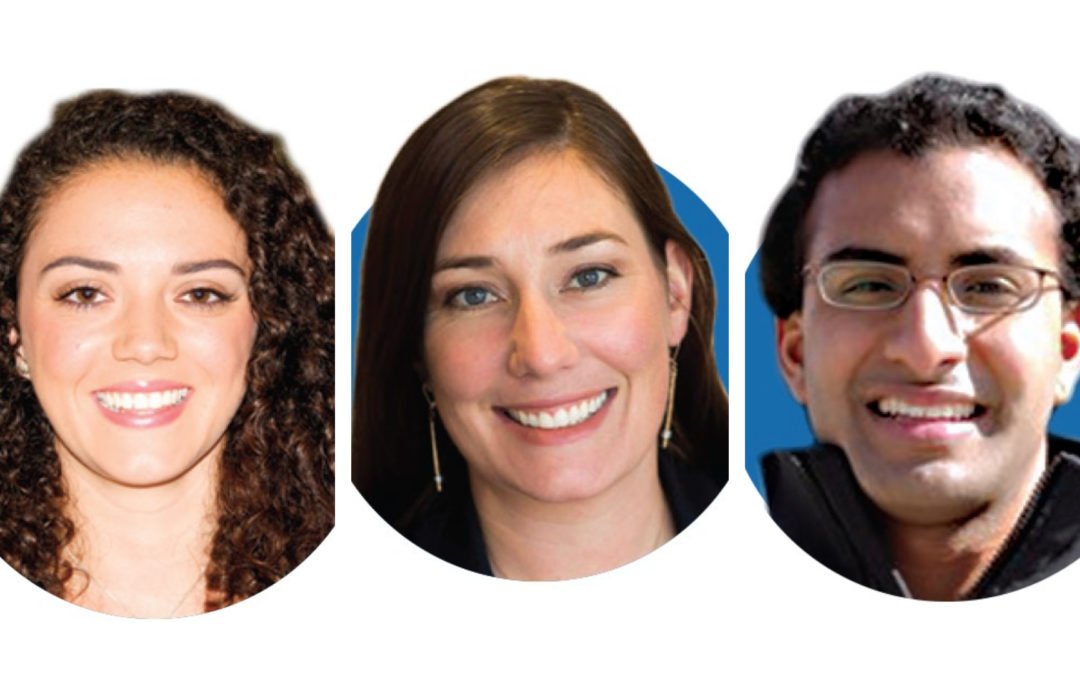
 Carolina Medina found herself in a paradoxical place after competing for the 2013 Hult Prize, a million-dollar seed-capital competition. Her team, which came together for the contest, finished in second place — but the winner took the entire purse. Undeterred, Carolina pressed forward with Agruppa, a company that leverages technology to empower mom-and-pop food vendors by providing produce at wholesale prices, eliminating middlemen. After a successful pilot in Kenya for the Hult Prize, Carolina and a partner brought Agruppa back to her home country of Colombia, and it continues to grow.
Carolina Medina found herself in a paradoxical place after competing for the 2013 Hult Prize, a million-dollar seed-capital competition. Her team, which came together for the contest, finished in second place — but the winner took the entire purse. Undeterred, Carolina pressed forward with Agruppa, a company that leverages technology to empower mom-and-pop food vendors by providing produce at wholesale prices, eliminating middlemen. After a successful pilot in Kenya for the Hult Prize, Carolina and a partner brought Agruppa back to her home country of Colombia, and it continues to grow.  Ashley Colpaart is a food system innovator whose business helps other food innovators. Inspired by other sharing e conomy businesses — e.g., Uber, Air BNB — The Food Corridor brings together commercial kitchens with excess capacity and nascent food businesses in need of kitchen space. It’s a win-win for all players, offering restaurants and school kitchens potential new revenue sources, and giving food producers a foot in the door to develop their products and grow their businesses. In June 2016 Ashley launched The Food Corridor’s platform in Colorado, taking on the first stage of building her market of commercial kitchens.
Ashley Colpaart is a food system innovator whose business helps other food innovators. Inspired by other sharing e conomy businesses — e.g., Uber, Air BNB — The Food Corridor brings together commercial kitchens with excess capacity and nascent food businesses in need of kitchen space. It’s a win-win for all players, offering restaurants and school kitchens potential new revenue sources, and giving food producers a foot in the door to develop their products and grow their businesses. In June 2016 Ashley launched The Food Corridor’s platform in Colorado, taking on the first stage of building her market of commercial kitchens.  Startup to acquisition is the ideal path for many new businesses. For Real Food Solutions, that milestone came just five months after winning a silver award at the 2016 Food+City Challenge Prize. The Boston-based company, co-founded by Neheet Trivedi, uses existing clinical research to create food-based remedies for everyday ailments, including nausea. In July 2016, they were acquired by Pink Stork Solutions, a company committed to delivering natural products to help alleviate some of the symptoms that come with pregnancy.
Startup to acquisition is the ideal path for many new businesses. For Real Food Solutions, that milestone came just five months after winning a silver award at the 2016 Food+City Challenge Prize. The Boston-based company, co-founded by Neheet Trivedi, uses existing clinical research to create food-based remedies for everyday ailments, including nausea. In July 2016, they were acquired by Pink Stork Solutions, a company committed to delivering natural products to help alleviate some of the symptoms that come with pregnancy. 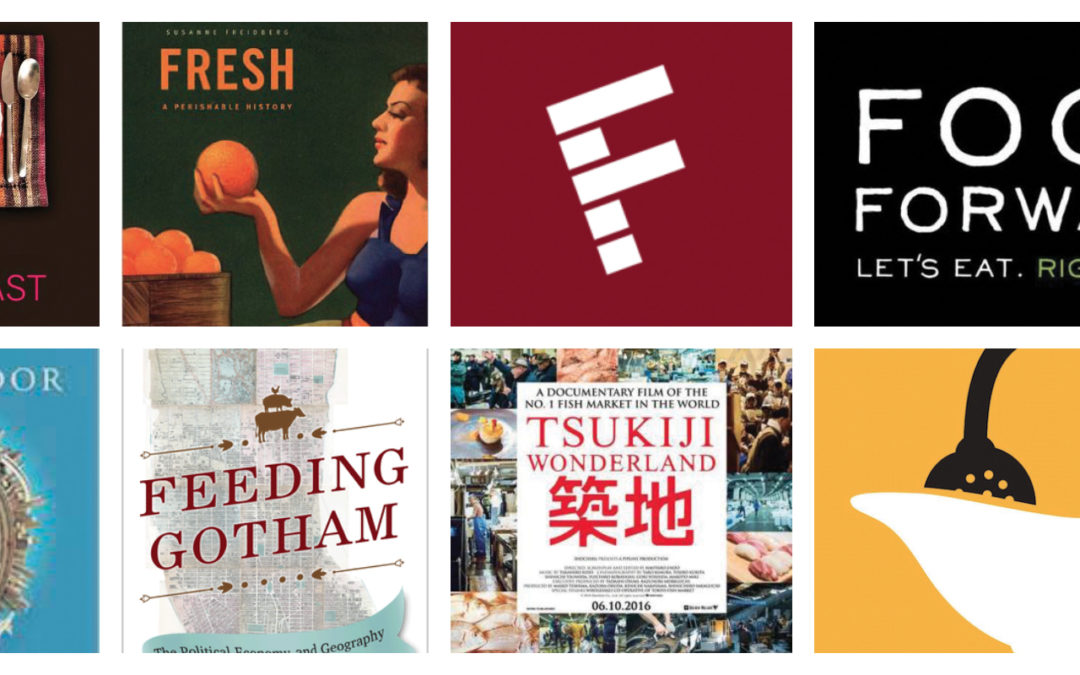
 Books
Books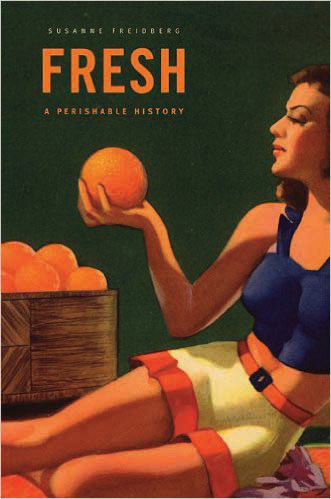
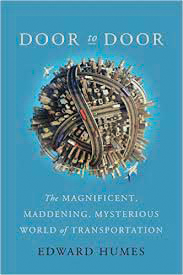
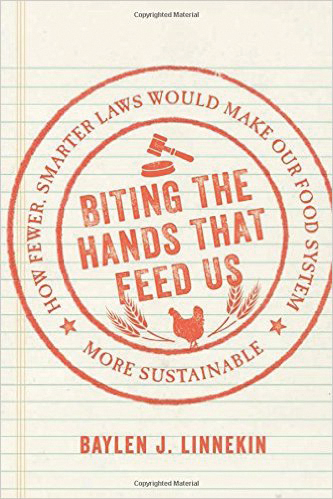
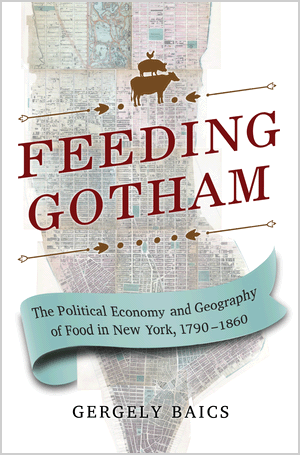
 Podcasts
Podcasts


 Films and Television
Films and Television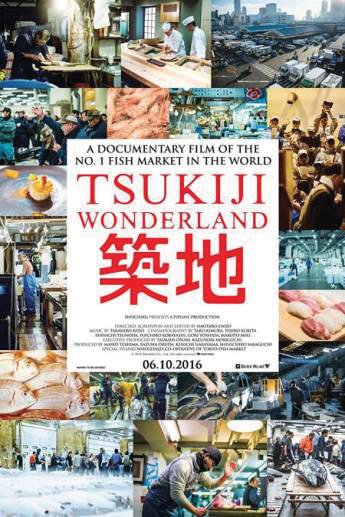

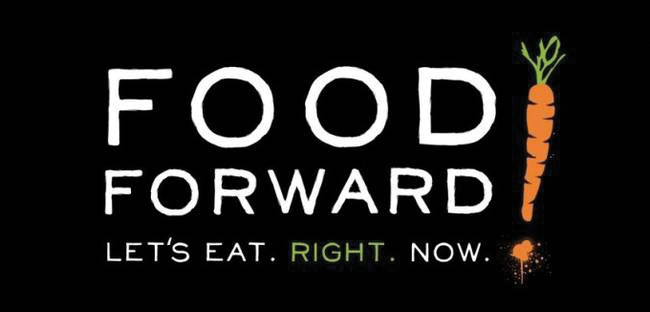
 Websites
Websites